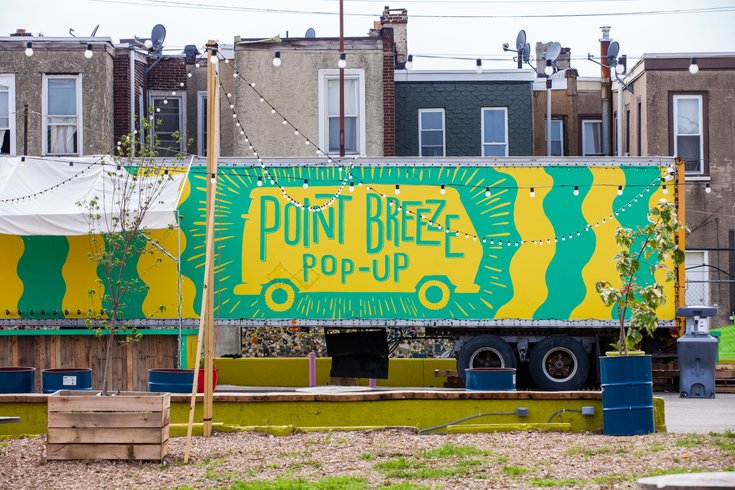
November 21, 2016
 Thom Carroll, File/PhillyVoice
Thom Carroll, File/PhillyVoice
The Point Breeze Pop-Up Garden at 1622 Point Breeze Ave. opened in May 2015 with an 18-wheeler-turned-bar, lunch trucks and an array of plants.
A Philadelphia beer garden may continue operations despite not having a proper zoning permit, a Pennsylvania appellate court ruled Monday.
The Point Breeze Pop Up beer garden opened in May 2015 on a vacant lot at Tasker Street and Point Breeze Avenue in the city's Point Breeze neighborhood. But the Department of Licenses and Inspections moved to shut it down several months later, saying its operations violated city zoning restrictions.
The beer garden, which operates as a fundraiser for local charities, opens Thursday through Sunday nights from May until the end of September. It has continued operating despite a legal battle that nearly dates back to its opening.
The panel of appellate judges delivered it a win Monday, affirming a lower-court decision, 2-1, to vacate a cease operations order issued by L&I in July 2015.
Point Breeze Pop Up is jointly operated by South Philadelphia Taproom Inc., Newbolds Brew LLC, American Sardine Bar Inc. — which are all licensed by the Pennsylvania Liquor Control Board to sell alcohol — and the Point Breeze Fund, which owns the lot housing the beer garden.
Prior to opening, the operators secured permits — including some issued by the city Department of Health and L&I — for off-premises catering and the ability to serve food and nonalcoholic beverages. They also secured necessary liquor licenses and invested some $30,000 to clear and landscape the vacant lot.
L&I first notified the beer garden's operators of its intent to shut them down on June 25, 2015. A final warning came four days later, threatening additional enforcement of zoning regulations and daily fines ranging from $150 to $2,000.
The operators filed a zoning application with L&I on July 1. They were informed its due date was June 29 and would not be initially approved, according to court documents. The application was later denied.
L&I then issued an order to cease operations, demanding the operators shut down as of midnight on July 8, 2015. After an appeal was rejected by the L&I Board, the operators filed a complaint in the Philadelphia Court of Common Pleas, alleging the city had violated their due process rights and caused them to suffer irreparable harm, among other claims.
The court granted an injunction and vacated the cease operations order on July 10, 2015, ruling the beer garden operators had demonstrated a "clear right to relief."
The city claimed L&I could shut down Point Breeze Pop Up because beer gardens are considered a prohibited commerical use within an area zoned as residential. Because the beer garden did not have a permit, the city claimed, it served as a nuisance by mere existence.
But the Court of Common Pleas ruled the beer garden operators had demonstrated "a clear right to relief" because L&I did not meet criteria to close down the operation. Such orders only may be issued when a property owner engages in continued use without one or more required permits that are required to protect the public health and safety, or create a public nuisance, the court ruled.
Appellate Court Judge Michael H. Wojcik affirmed that ruling, writing that the Court of Common Pleas "did not abuse its discretion or misapply the law" in finding that L&I did not meet the prerequisites needed to issue a cease operations order under Philadelphia Code.
But Judge James Gardner Collins agreed with the city, penning a dissenting opinion.
"Regardless of the salutary nature of this so-called 'pop-up beer garden,' it is still being operated in derogation of the Philadelphia Code," Collins wrote. "The novelty of a use does not render passe the presumption that a zoning ordinance is a legitimate exercise of the police power enacted to protect and preserve the public health, safety, and welfare."